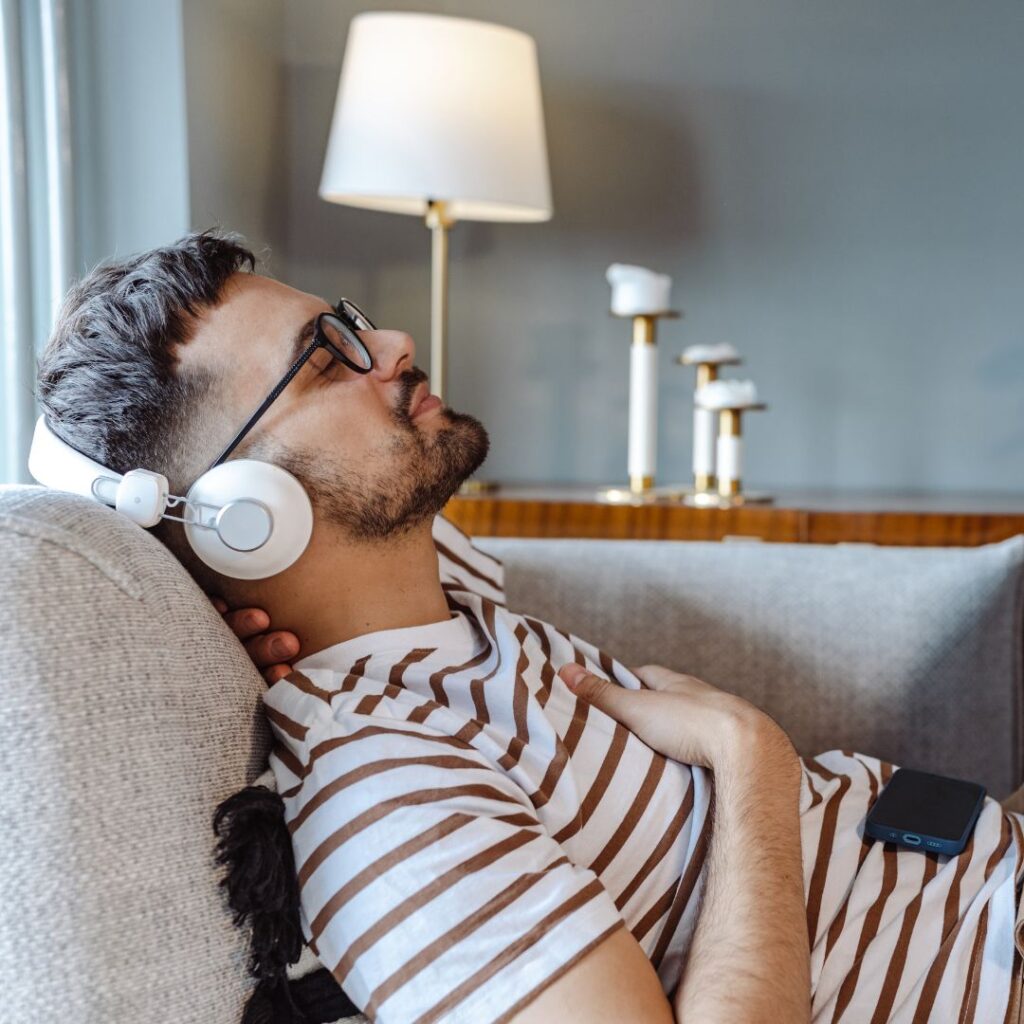Listen, For Your Own Good
Date | Author |
|---|---|
August 15, 2023 | Stephen Lyons |
Could the blood of passion that courses through Bizet’s Carmen spark your creativity and reduce your blood pressure? Could Benjamin Britten’s A Midsummer Night’s Dream improve your quality of sleep? Could the vengeful rage in the Queen of the night’s aria from Magic Flute help reduce stress? (like, in general…probably not during…) In the early-90’s, word splashed across newspapers and poured freely from the mouths of TV anchors: “Mozart makes you smart!” An experiment by psychologist Francis Rauscher had suggested that participants who were exposed to a ten-minute piano sonata showed improved spatial intelligence when compared to the non-sonata’d participants. It was a very small, one-time test involving 36 students, and the great Maestro’s competition was a boring speaking voice, droning monotonously to half of them. Hardly hard science. To Rauscher’s professional chagrin, the experiment’s overgeneralization in the media sparked a phenomenon that saw classical music pitted against the presumably-dumbing effects of rock, and Mozart CDs distributed to every newborn child in Georgia and Tennessee (for real). The “Mozart Effect” story of 1993 turned out to be less about the link between classical music and mental acuity, and more of an indicator of a slow news day (luckily the results of an experiment that showed markedly improved vocal range in children who were suddenly paired with tarantulas was buried by news of Sea Hero winning the Kentucky Derby). But wait! Just because that particular test isn’t an airtight case for the health benefits of opera and classical music, doesn’t mean one can’t be made. (though it also doesn’t necessarily mean one can…). The topic has been the focus of scores of studies worldwide that—while not necessarily arguing that all new parents should station a string quartet cribside, lest the child’s brain fall to cartoonish ruin – do make a strong and balanced argument for plugging into the stimulating, emotionally-rich art of opera.

Calling opera “music for the heart”, the BBC covered an Italian study that saw benefits in stroke rehabilitation, noting that “Verdi’s arias, which follow music phrases that are 10 seconds long, appeared to synchronize perfectly with the natural cardiovascular rhythm.” The broadcaster’s Classical Music Magazine also looked at a range of studies on brain health and mental wellbeing, writing that “music is unique in simultaneously engaging more areas of the brain than any other activity of daily life […] and, uniquely, all four lobes of the cerebral hemispheres and the brain stem. Music not only engages multiple parts of the brain but helps them work together.” We implicitly feel that listening to music enlivens the brain and has great therapeutic value for healthy aging, pain and stress management, and overall well-being. “The outstanding research questions need to be answered to provide proof of what we know intuitively about the importance and relevance of music in all aspects of life.” And, so…bring on some more studies!
Time Magazine reported on a 2017 study’s findings that listening to upbeat classical music “helped people perform better on tasks that involved ‘divergent’ thinking, which is a core component of creativity.” The Lancet published an analysis of literally hundreds of studies on the positive impact of music on pain management, finding that it helped patients to use significantly less pain medication, and drop two notches on the 10-point pain scale – the same relief “typically reported with a dose of painkilling medicine.”
Other studies tout classical music’s value in improving quality of sleep and productivity, relieving stress, and supercharging brain power ahead of tests or big projects. Importantly, studies like this one out of Mexico cite the clinical benefits of music therapy on combating depression. Since the pandemic, anxiety, depression and mental health have become front-burner issues, and we’ve all been impacted. The many and varied studies seem to share a common theme: when the mind engages, the soul and the body find greatly restorative results. Is opera inherently better than, say, K-pop or electropunk at providing these benefits? We can’t say for sure, but if you’ve read this far, this particular experiment’s results would suggest that you’re an appreciator of opera. And while we’re admittedly a tad biased, we believe opera is an enduring, endlessly-astounding art form that can lend us its passion, beauty — and healing powers! — along the path of a life well-lived. ______________________________________________________________________________ Sources: https://www.npr.org/2010/06/28/128104580/mozart-effect-was-just-what-we-wanted-to-hear https://takelessons.com/blog/benefits-of-listening-to-classical-music-z15 http://news.bbc.co.uk/2/hi/health/8112247.stm https://www.classical-music.com/features/articles/does-listening-to-music-help-your-mental-health/ https://www.npr.org/sections/health-shots/2015/08/13/431695242/sutures-with-a-soundtrack-music-can-ease-pain-anxiety-of-surgery https://time.com/5626958/music-creative-thinking/ https://www.sciencedaily.com/releases/2008/10/081006093020.htm





